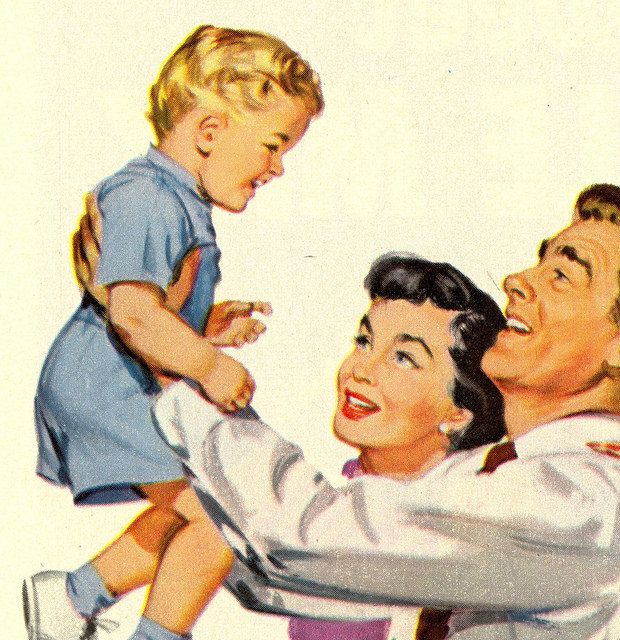I worked in the same school district for more than 30 years. Mostly, I taught music—band, choir, elementary music—but occasionally other things: Seventh grade Math (two years), English as a Second Language (for which I was totally unqualified), and a class called Homework Hall.
This was a kind of holding cell where kids who had lots of missing assignments were sent–pulled from elective classes–to receive coaching toward filling in the empty boxes in their teachers’ grade books. A second chance to pass classes they would otherwise fail. A way to protect their permanent record, so to speak.
Back then, the county was a cluster of pretty little all-white towns, interspersed with farmland. When I applied for a teaching position, in the mid-70s, the principal called the village where I got my job “the far edge of white flight.” He was right. More and more people were pushing outward from Detroit, claiming they were looking for a more bucolic setting, and then being surprised when they had to provide their own water, septic and garbage pickup.
Still, it was a good job, and they were hard to come by in 1975. Parents—many of whom had grown up in the area—came to concerts and parent-teacher conferences. They took their kids to the library and volunteered to lead scout troops. They rented band instruments for their children and coached Little League. For a long time—decades—I thought teaching there was ‘easy.’
True, there were worrisome things—the town where my cute, second-floor Mary Tyler Moore apartment was had a reputation as the home of the Michigan Ku Klux Klan. There was lots of local trash talk about Flint (30 miles north) and Detroit (50 miles to the east)—although the area’s transition from rural farmland to outlying suburb was driven, economically, by the auto industry, centered in those two cities.
White flight, indeed. My middle school students occasionally made unfiltered, racist remarks—things they’d likely heard at home—but I was never afraid to call them out. That was then.
Here’s a one-minute video that will tell you all you need to know about this town in 2021, shot earlier this week: Click here.
If you haven’t listened to the NY Times podcast series ‘Nice White Parents’, I heartily recommend it. The tagline captures it all: If you want to understand what’s wrong with our public schools, you have to look at what is arguably the most powerful force in shaping them: white parents.
I no longer live in that town. I moved four hours north several years ago. And guess what? There are lots of ‘nice’ white parents here, too. The stakes are now higher, and student actions are no longer limited to random, clueless remarks. There is outright cruelty—and stormy, ugly school board and county commission meetings.
Sometimes, a kind of common sense prevails—but nice white parents have experience in complaining and getting some action and relief. As a veteran teacher, I can think of dozens of issues that brought angry parents to school board meetings, from sex education to the math curriculum, from bus routes to which neighborhoods got to attend the new, high-tech elementary school (the well-heeled ones, naturally—because those are the parents who showed up to demand access to the new building).
Homework Hall—that class where students got to make up missing work—was created when nice white parents approached administrators, worried that their kid might be doing a second year in the 7th grade. Nice white parents know how to get what they want. And they’re resentful when they do not succeed.
Here’s what I want to know, in 2021: Who is driving the current pushback against honest, warts-and-all American history and civics in the classroom? Who wants to send their unvaccinated children to school unmasked? Who is demanding that teachers scrap their own, self-acquired libraries—the books teachers buy to provide engaging texts for their students?
Sarah Schwartz of Education Week: In the months after the 2020 election, former Trump administration officials and allies built up a network of think tanks and donor groups dedicated to continuing to advance his policy agenda. Critical race theory has become a central issue for several of these organizations.
Nice white parents, in other words, are organized and funded. There are partisan threads running through this anger, and differences between parents with a college education and those without. Religion plays a role, as does race and gender.
Political scientist David C. Barker summed it up this way: The populist/anti-intellectual right absolutely believe that the intellectuals are not only out of touch but are also ungodly and sneaky and therefore think they must be stopped before they ruin America. Meanwhile, the intellectual left really do believe the Trumpers are racist, sexist, homophobic (and so on) authoritarians who can’t spell and are going to destroy the country if they are not stopped.
At the base of all the fury over education policy, however, is the fact that white parents have historically had way more success in shaping school programs and practices. And most of the stories in education journalism come from white journalists.
As Ray Salazar writes: When journalists come from backgrounds where they usually found success in traditional systems — systems that perpetuate inequality — they report from that worldview, bypassing the insights that would be meaningful to people with a different reality.
That different reality is endangered, along with democracy. Those think tanks and donors supporting Trump’s education policy agenda are made up of nice white parents, not the parents of students who are struggling to learn without adequate broadband, materials and well-trained teachers.
Final point: This isn’t getting any better. Most Republicans now believe the Big Lie. State legislatures are working to limit voter access. Trump is still relevant, the overwhelming favorite in 2024. The anti-democratic political crisis is worse, not better, than it was in January.
It’s a crisis in public education leadership as well.


So what do we do when people decide the only way to get there way is to go beyond even shouting and screaming with threats of violence?
LikeLike
cx: their way
LikeLike
Wish I knew. I think that January 6 encouraged, rather than discouraging, the concept of violence being the answer. All the footage we saw, over and over again (99% of which was fomented by white people) might lead to the idea that violence is the ultimate answer. No wonder they’re going after schools, which are places designed to civilize children, build communities, teach them to share and cooperate.
LikeLike
Personally, and with respect for your frustration, I would blame the politicians since Reagan who have gleefully jumped on the neoliberal capitalism bandwagon that says any publicly-run service, and education in particular, is anathema and must be placed in the hands of private industry. Based on my study and ongoing observation of this issue, it’s clear to me those privatizers are now using the pandemic and “race theory” to complete the job they’ve been working on for the last 40 years.
No less than Malcolm Forbes said “Education’s purpose is to replace an empty mind with an open one”; and yet anyone who spends even a minimal amount of time on social media like Twitter discovers quickly that’s not what our children have been receiving from the alleged boon of “education reform”. Just the opposite, in fact.
LikeLike
Well, sure. Politicians are always looking for social trends they can manipulate to retain power. Still–something’s happening here–now–and the root causes are probably not clearly delineated, or singular. It’s a perfect storm of grievances and ancient biases.
LikeLike
And that unwillingness to even consider that what appears to be, and is presented by corporate media as, a bunch of yahoos acting up is in fact a carefully designed and managed campaign to advance a larger goal is how those who planned and executed the campaign always win.
LikeLike
I think the bigger agenda is decimating public education and demanding tax money, education vouchers, etc. for charters and home schooling. The grievances are meant to work people up and help them find like-minded comrades. Germane to that, I once read that advertising first creates a need and then supplies an easy fix, “You deserve a break today, so get up and get away…to McDonalds.”
LikeLike